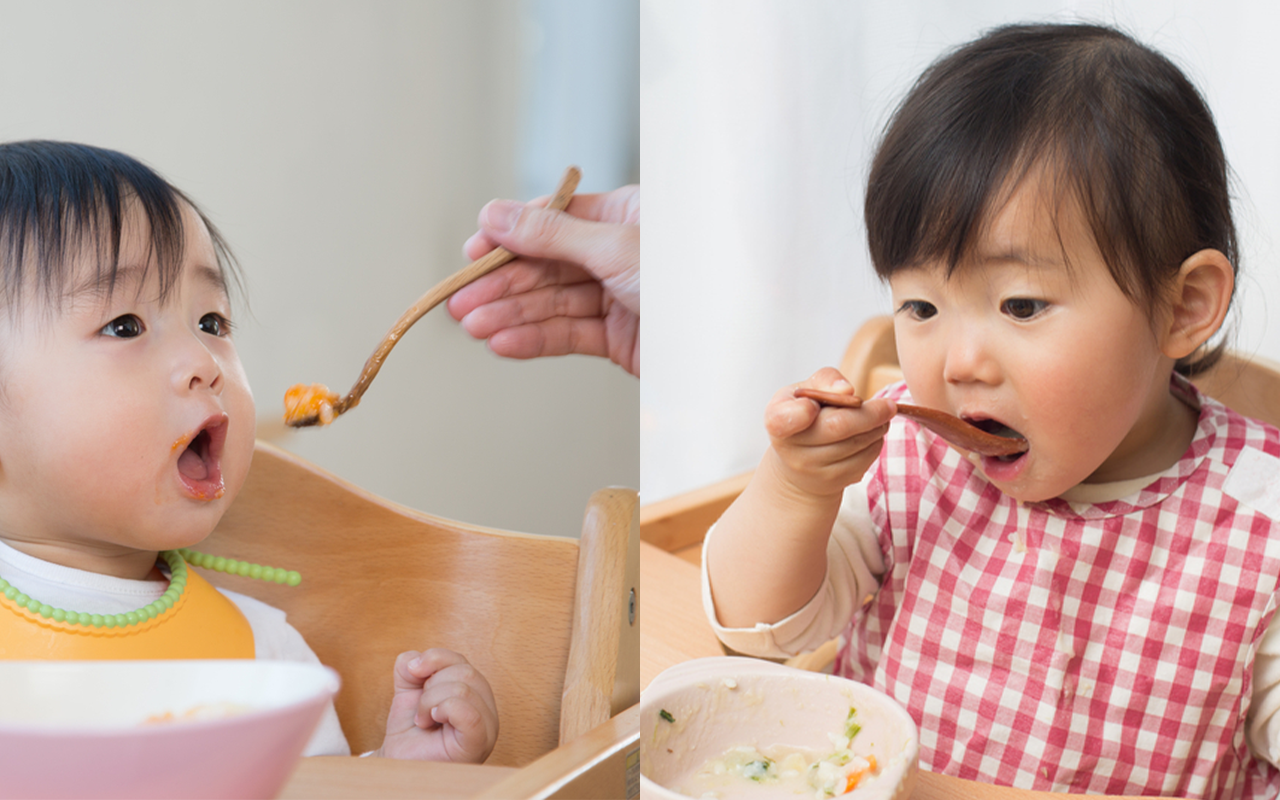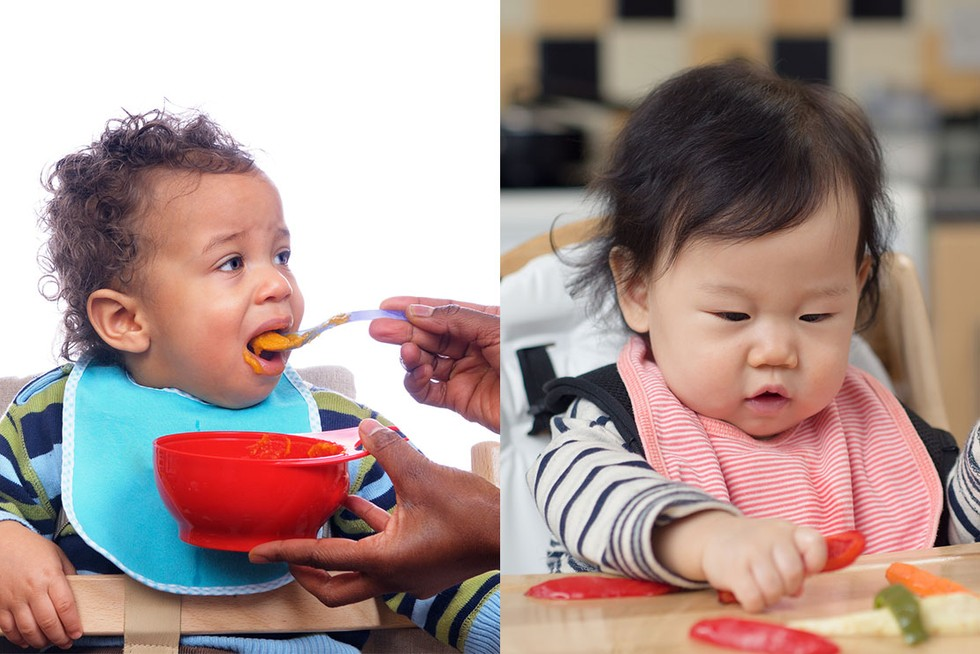
Introducing solid foods to your baby is an exciting milestone, but it can also be overwhelming for new parents. There are two primary methods: baby-led weaning and spoon feeding. Both have their benefits, and it's essential to understand each before choosing the one that's right for your baby.
 Baby-led Weaning
Baby-led Weaning
Baby-led weaning is a method of introducing solid foods to babies that allows them to feed themselves. It involves offering soft finger foods and letting the baby decide how much and what to eat. The idea behind baby-led weaning is that babies are instinctively able to regulate their appetite and can learn to eat a variety of foods from an early age.
Here are some benefits of baby-led weaning:
Baby-led weaning encourages babies to listen to their hunger cues and learn to eat until they are full.
Baby-led weaning offers babies the opportunity to explore different textures and flavours of food, which can help develop their taste preferences.
Baby-led weaning requires babies to use their fingers and hands to grasp and manipulate food, which can improve their fine motor skills.
Here are some challenges of baby-led weaning:
Parents need to be mindful of the size and texture of the food they offer their babies to avoid choking hazards.
Baby-led weaning can be messy, which may not be practical for some families.
 Spoon Feeding
Spoon Feeding
Spoon feeding is a method of introducing solid foods to babies that involves spoon-feeding pureed or mashed food to the baby. The parent or caregiver is responsible for controlling the amount and type of food the baby receives.
Here are some benefits of spoon feeding:
Spoon feeding allows parents to control the amount and type of food their baby receives, which can be helpful for babies who have difficulty regulating their appetite.
Pureed or mashed foods are often more nutrient-dense than finger foods, which can be important for babies who may not be getting enough nutrients from breast milk or formula.
Spoon feeding can be more convenient than baby-led weaning because it requires less preparation and clean-up.
Here are some challenges of spoon feeding:
Spoon feeding may lead to overfeeding, which can cause babies to develop unhealthy eating habits.
Spoon feeding may lead to picky eating habits if the baby is not introduced to a variety of flavours and textures.
Spoon feeding does not promote the development of fine motor skills and independence as much as baby-led weaning.

Which Method is Best?
Ultimately, the choice between baby-led weaning and spoon feeding is a personal one. If you prefer a more independent approach that encourages exploration and self-regulation, baby-led weaning may be the way to go. If you prefer a more controlled and convenient approach that ensures proper nutrient intake, spoon feeding may be the better option.
Some parents may find that a combination of these two approaches works well for their baby. To combine these methods, parents can offer a variety of foods that are appropriate for baby-led weaning, such as soft fruits and vegetables, pieces of cooked meat or fish, and small amounts of soft grains like rice. They can also offer pureed or mashed foods using a spoon, such as pureed fruits or vegetables, yogurt, or baby cereal.
Whichever method you choose, it's important to remember that introducing solid foods is a gradual process, and your baby's preferences may change over time. It's also essential to consult with your paediatrician before starting solid foods and to continue breastfeeding or formula feeding until your baby is at least one year old.



Comments